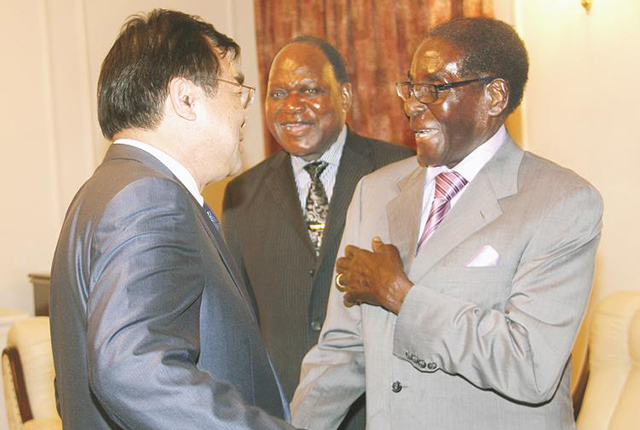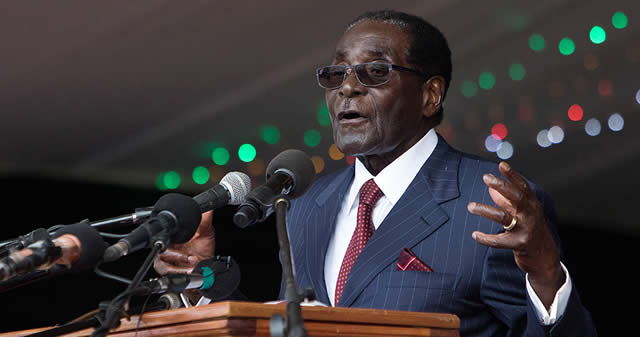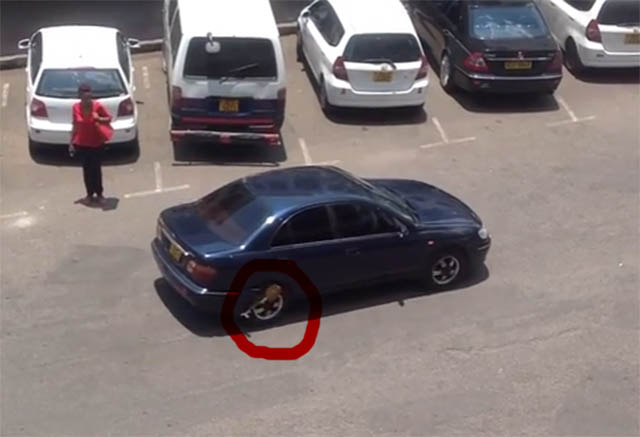President signs Special Economic Zones Bill


President Mugabe shares a lighter moment with Deputy Secretary-General of The National Development and Reform Commission from China Mr Fan Hengshan at State House in Harare yesterday, while Chief Secretary to the President and Cabinet Dr Misheck Sibanda looks on. — (Picture by Munyaradzi Chamalimba)
Felex Share Senior Reporter—
President Mugabe yesterday finally signed into law the Special Economic Zones Bill in a move that is expected to see the country attracting foreign direct investment. The special economic zones are also expected to establish an appropriate regulatory and policy infrastructure to enable local and regional trade to flourish. This comes as President Mugabe yesterday met some members of a visiting 20-member Chinese delegation at State House.
The delegation is in Zimbabwe to speed up the operationalisation of the mega-deals agreed between the Governments of China and Zimbabwe. The delegation is headed by Mr Fan Hengshan, deputy secretary-general of the National Development and Reform Commission (NDRC).
The NDRC is the economic planning body of China. Chief Secretary to the President and Cabinet Dr Misheck Sibanda, confirmed the signing of the Special Economic Zones Bill after President Mugabe’s meeting with the Chinese delegation.
“The delegation came in the wake of the work that we have already done to speed up the operationalisation of the agreements that were signed between President Mugabe and his Chinese counterpart Xi Jinping last December,”
“This is the first concrete, practical way of translating what has happened. In fact, coincidentally today the President signed the Special Economic Zones Act, which is going to be the basis of the operationalisation of all the work we are doing.”
President Mugabe in September referred back to Parliament the Special Economic Zones Bill after expressing reservations on a clause that sought to suspend the Labour Act whose effect would have exposed workers to “serious” abuse by employers.
In rejecting the Bill, President Mugabe cited Section 56 of the Special Economic Zones Bill, which he said was not consistent with Section 65 of the Constitution as it sought to suspend operations of the labour laws in special economic zones.
Section 56 of the Bill provides as follows: “The Labour Act Chapter 28:01 and the Indigenisation and Economic Empowerment Act (Chapter 14:33) shall not apply in relation to licensed investors operating in a special economic zone.”
Section 65 (1) of the Constitution provides that “every person has the right to fair and safe labour practices and standards and to be paid a fair and reasonable wage . . .(4) Every employee is entitled to just, equitable and satisfactory conditions of work.”
The Bill later sailed through Parliament incorporating suggestions proposed by the President. Dr Sibanda said the special economic zones would be built in Harare, Bulawayo and Victoria Falls.
“These are our colleagues from the NDRC and they came with a high powered delegation from Gansu province and a company that is responsible for the implementation of the special economic zones,” he said.
“They are experienced, they have established very successful special economic zones to a point whereby they propelled their economy to a position where they are now the second in the world after the United States. It is a basis of speeding the process of industrialisation. You give us time, starting next year you will begin to see lots of activities because of the coming of our friends.”
Dr Sibanda added: “We have been working over the weekend with them. We went to Sunway City, the companies that are here have found their counterparts in Zimbabwe. So it will be a joint venture, win-win situation. It will not be a one-sided affair.” Mr Fan said all the mega deals agreed between Presidents Mugabe and Xi would come into fruition. “Our visit as the NDRC delegation is very successful,” he said.
“We will implement the important consensus reached between the leaders of the two countries and also to deepen the cooperation in line with China’s One Belt One road initiative through international protection capacity cooperation. We will also enhance the development of Sunway City and other Zimbabwe’s special economic zones.”
Among a plethora of agreements with China that cuts across energy, agriculture and infrastructure development, Government has identified special economic zones as a definite programme of action.
These include Sunway City in Harare as well as one in Bulawayo which entails construction of an industrial economic zone covering beef to leather industry, cotton to textile industry, steel and foundry and the rehabilitation of the National Railways of Zimbabwe headquarters.









Comments